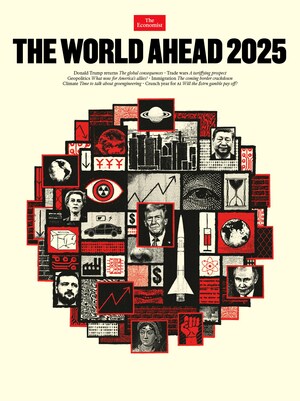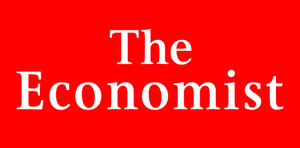Malala Yousafzai joins forces with The Economist to mark International Women's Day
The Nobel laureate and her chosen guest authors write about education for The Economist
Editor-in-chief Zanny Minton Beddoes speaks with Malala Yousafzai in an exclusive subscriber-only digital event on how to improve the lives of women and girls across the world
LONDON, March 7, 2022 /PRNewswire/ -- To mark International Women's Day, The Economist will publish guest essays from Malala Yousafzai and authors chosen by the renowned girls' education activist, Nobel laureate and co-founder of Malala Fund.
Malala is the first guest editor of "By Invitation," The Economist's online section for guest essays. For International Women's Day on March 8th, Malala has invited four young women to write articles on issues connected to girls' education. She has also written one herself. In it she considers the importance of investing in girls' education in the aftermath of the covid-19 pandemic. She also introduces her guest authors, and explains what they will write about.
Guest authors include:
- Ugandan climate-justice activist Vanessa Nakate on climate and education
- South African inventor, scientist and speaker Kiara Nirghin on encouraging girls into STEM
- Anti-colourism student advocate Tigidankay "TK" Saccoh on discrimination in the classroom
- Activist Freshta Karim on girls' education in Afghanistan.
"We know that educating girls is an excellent way to help reduce global poverty," says The Economist's editor-in-chief, Zanny Minton Beddoes. "We are delighted that Malala and invited young writers have contributed their voices to The Economist's 'By Invitation' series on this important topic. We hope their stories will highlight some of the many challenges still facing young women and girls."
Malala also sat down with Zanny for a filmed interview to discuss girls' education around the world, the unfolding crisis in Afghanistan and how to improve the lives of women and girls.
"The research that we have done at Malala Fund shows if we educate all girls and give them a complete secondary education, it adds up to $30 trillion to the world economy," said Malala in her interview with The Economist.
She continued, "Access to education helps us reduce poverty, tackle climate change, reduce the likelihood of war, and thereby improve economies. So, the advantages are enormous. What is lacking right now is the political will from leaders that can bring about the changes we need in the education sector."
The essays and the webinar interview can be found on The Economist's International Women's Day content hub, "Women around the world". The essays will be in front of the registration wall for a limited time. The content hub includes some of the best coverage from across The Economist on the lives of women—from inspiring stories to the political and economic inequalities that persist globally. It also includes The Economist's annual glass-ceiling index, which ranks OECD countries based on conditions for working women.
About The Economist (www.economist.com)
With a growing global audience and a reputation for insightful analysis and perspective on every aspect of world events, The Economist is one of the most widely recognised and well-read current-affairs publications in the world. In addition to the weekly print and digital editions and website, The Economist publishes Espresso, a daily news app, and Global Business Review, a bilingual English-Chinese product. It produces The Intelligence, a daily current-affairs podcast, several other weekly podcasts and short- and long-form video. The Economist maintains robust social communities on Facebook, Twitter, LinkedIn and other social networks.
SOURCE The Economist

WANT YOUR COMPANY'S NEWS FEATURED ON PRNEWSWIRE.COM?
Newsrooms &
Influencers
Digital Media
Outlets
Journalists
Opted In






Share this article